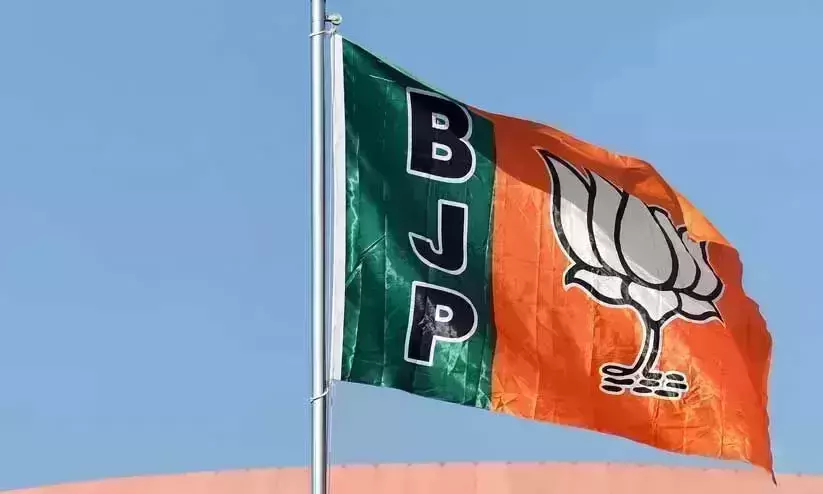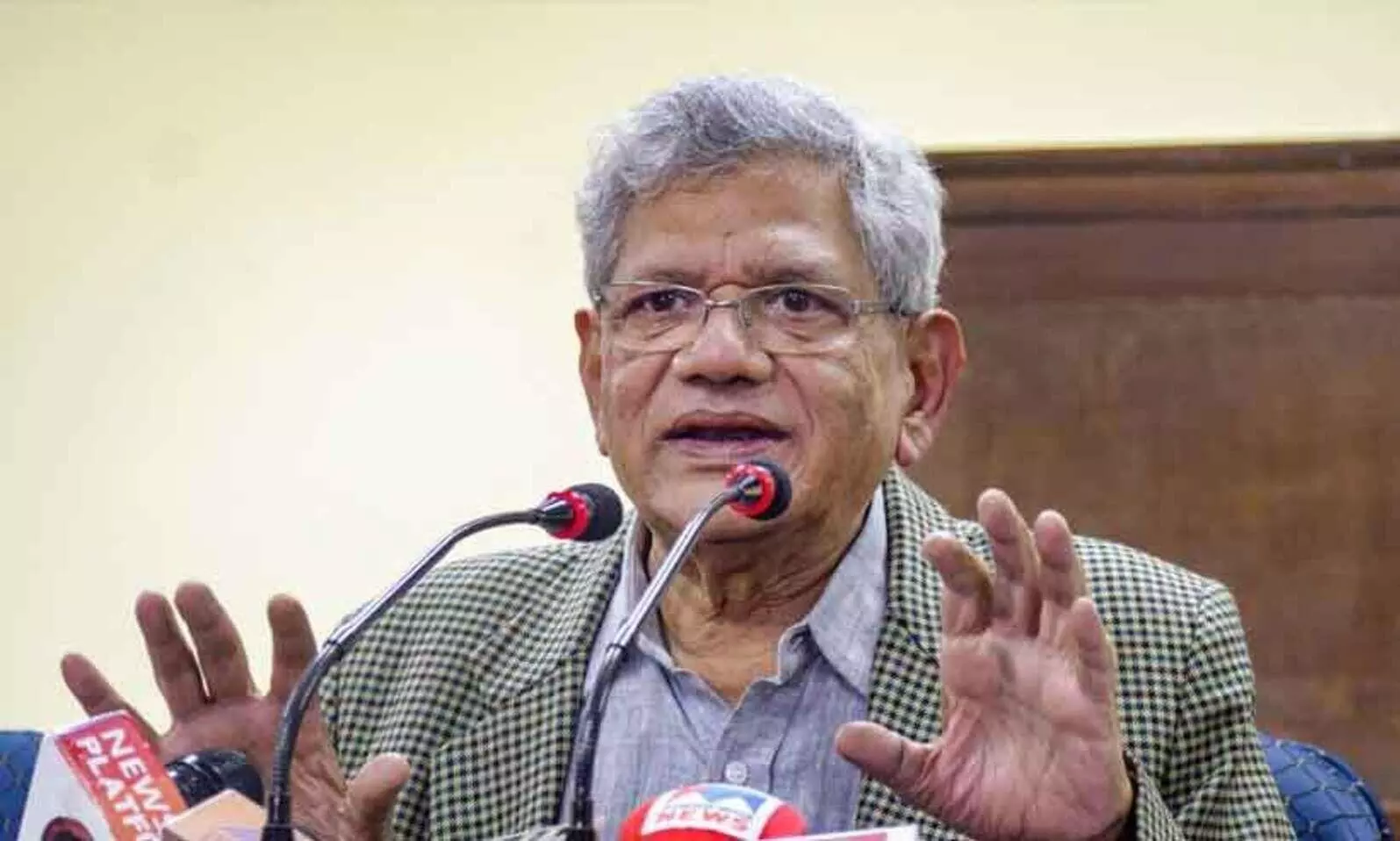
CPM's belated wisdom – to be lauded still
text_fieldsCPM general secretary Sitaram Yechury (file photo)
The Central Committee of the Marxist Party of India-Marxist (CPM) has decided to co-operate with secular opposition parties, including the Congress, in the upcoming state assembly elections with a goal of defeating the BJP. The party which discussed at its consultative highest level the strategy to be adopted in the assembly elections in the near term in states of Kerala, West Bengal, Tamil Nadu and Assam, has also made it clear that there can be direct co-operation with the Congress, except in Kerala. The party general secretary Sitaram Yechury, while explaining the decisions of the meeting, termed the BJP as a threat to the very republic of India based on its constitution. In fact, the ruling dispensation at the Centre led by the BJP is even beyond Yechury's description. For, it is a unique alliance that works overtime to wreck the soul of the great idea that is India. Therefore any move by secular democratic parties against that coalition is nothing but laudable. The fact that the largest Communist party of the country came to this realisation, albeit trifle late should elate and strengthen the democratic camp of the country.
Even earlier, several leaders within CPM itself had raised the argument that in order to keep fascist forces away from power, the party should make tie-ups with secular parties. Two and a half years ago, when the 22nd Party Congress met at Hyderabad, the draft resolution floated as a prelude to the meet, was about the relations with the Congress party. The contention put forward by Prakash Karat and his supporters with the backing of the Kerala unit, was that although the BJP was the arch enemy, there should not be any alliance with the Congress to defeat it. Leaders like Yechury and VS Achuthanandan from Kerala pleaded that even if no front or alliance was formed to achieve the goal, there was no harm in arriving at a common electoral strategy. When the party Congress took up the subject, Yechury's position was adopted with certain changes. At any rate, this policy was put in practice though not in direct form, in several state assembly elections that followed. In Karnataka when HK Kumaraswamy came to power keeping the BJP away, Yechury was one of the leading party leaders of the 'grand alliance' that attended the swearing-in ceremony. And the alliance's platform that came to the fore the next year, lining up top opposition leaders including Sonia Gandhi, Rahul Gandhi, Akhilesh Yadav, Mayawati, Mamata Banerjee and Kunhalikutty, it gave an impression that in the Lok Sabha election in the following year, it had the strength to decimate Modi. And the circumstances of BJP's ouster in Madhya Pradesh and Rajasthan, was mostly thanks to this alliance. But as Lok Sabha elections got closer and closer, the alliance became more and more splintered. Parties including the CPM, appeared to revel in their own shells. It went to the extent of the party's organ writing an editorial disowning the grand alliance and deterring Yechury. It was as a result of the opposition disunity that Modi got a straight second term with brute majority.
Even if in hindsight, if the CPM had made an electoral understanding with the Congress in line with the resolution that was approved at the party Congress, it would not have inflicted such a heavy blow on the CPM. And it was the same approach in Kerala that made the minority communities ditch the party in toto and support the UDF. CPM was able to hold on at least to some extent only in Tamil Nadu where it had an understanding with the Congress. Thus it is the folly it committed in the Lok Sabha poll that the party is now trying to correct. The decision is bound to be reflected in West Bengal and elsewhere. It also merits an analysis why its decision was this delayed. The main reason for this slack attitude is the still unresolved confusion whether the NDA government at the Centre qualifies to be deemed a fascist entity. Leaders like Prakash Karat are not yet prepared to call the regime fascist, even when it employs in diverse forms the direct tools of racial extermination. This confusion naturally will affect electoral tactics. Only when it realised that even its remaining pockets will also be washed away did the party opt to work with secular parties without a litmus test. But even then it will constitute a mere electoral understanding, and it will become complete only when it expands into a broad political alliance. This is an era in which the victims of fascism are taking position in the battle front against it. The slogans heard from Shaheen Bagh and similar places are far beyond, and defy the classical Communist logic of class analysis. The CPM has also the obligation to adopt the political models of the new democracy including recognising the identities of such agitations conducted by backward and minority sections. Only then will this decision win the acceptance of the people. Or else, it will end up as yet another election gimmick destined to fail.
























